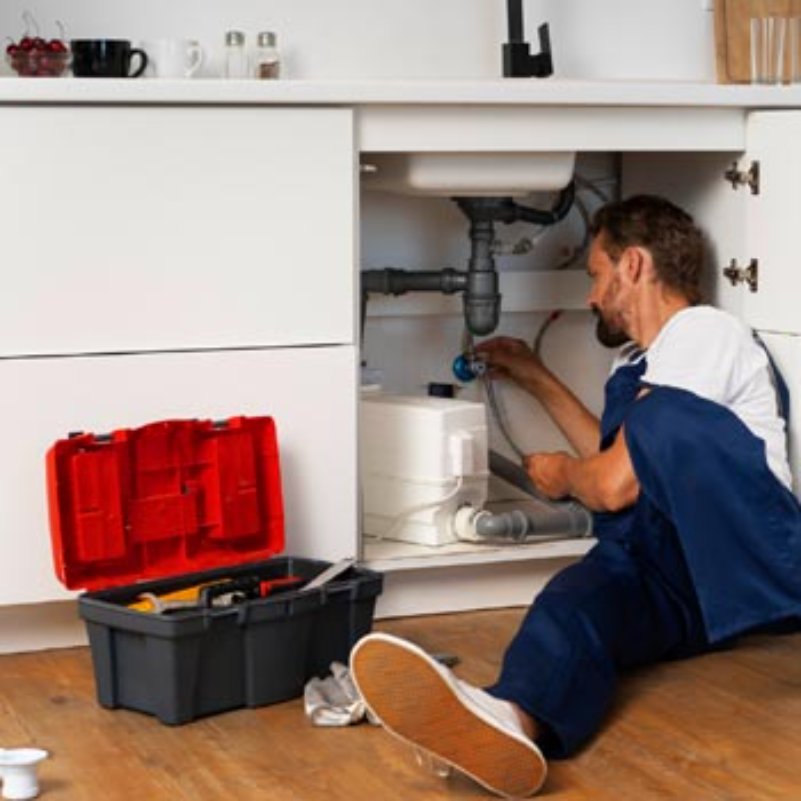In this comprehensive guide, we'll explore seven crucial steps to help you navigate plumbing emergencies with confidence, ensuring that you're prepared to tackle any unexpected situation that arises.
Shut Off the Water Supply
The first step in any plumbing emergency is to locate and shut off the water supply to the affected area. The main shut-off valve is typically located near the water meter or where the main water line enters your home. To shut off the water, turn the valve clockwise until it's fully closed. If you are not sure about its location, you can usually find it in the basement, mechanical rooms, in crawl spaces, and in the yard. This action will stop the flow of water and prevent further damage to your property.Assess the Extent of the Damage
Once the water supply is turned off, take a moment to assess the severity of the plumbing emergency. Look for signs of water damage, such as wet walls, ceilings, or flooring, and determine the extent of the damage. Other symptoms that may be pointing out that something is wrong are rust, discoloured walls, strange odours, and unusual warping of the walls and affected materials. Keep special attention to exes mould since it is one of the most obvious dead giveaways. If the situation is beyond your ability to handle, don't hesitate to call a professional plumber for assistance.Implement Temporary Solutions
While waiting for a professional plumber to arrive, you may need to implement temporary fixes to prevent further damage to your home. For example, if you have a burst pipe, use a pipe clamp or plumber's tape to seal the leak temporarily. If you don’t have any of these tools, you can also sue epoxy putty. Just put on the latex gloves, mix epoxy putty by hand, wrap it around the crack and leave it applied for 10 to 15 minutes before using the water again.If anything, you can always place buckets or towels under leaks to collect water and prevent it from spreading. These temporary measures can buy you time until permanent repairs can be made.
Contact a Licensed Plumber
Once you've taken initial steps to contain the situation, it's crucial to contact a reputable plumber as soon as possible. Preferably, you should have one on a speed dial even if you don’t experience immediate problems. Also, keep these pros close by. If you live in Sydney, look for a professional plumber in Sydney or some of its outskirts.Look for a plumbing service that offers emergency assistance and has a proven track record of prompt and reliable service. Provide them with detailed information about the nature of the plumbing emergency, including any temporary fixes you've implemented, and schedule a service call at your earliest convenience.
Clear Blockages in Drains and Toilets
Blocked drains and toilets are common plumbing emergencies that can disrupt your daily routine. If you encounter a clog, start by using a plunger or a drain snake to clear the blockage manually. Apply firm, rhythmic pressure with the plunger to dislodge the obstruction, or use the snake to break up and remove debris from the pipe. If the clog persists, seek assistance from a professional plumber to prevent further damage to your plumbing system.Address Issues with the Water Heater
A malfunctioning water heater can quickly become a major inconvenience for your household, especially if it fails during cold weather. If you notice any signs of trouble, such as a lack of hot water or unusual noises coming from the tank, it's crucial to address the issue promptly.Turn off the power or gas supply to the water heater and contact a qualified plumber to diagnose and repair the problem. Issues with water heaters can vary widely, from simple thermostat adjustments to complex repairs or replacements, so it's best to leave these tasks to the professionals.
Prevent Future Emergencies with Regular Maintenance
The best way to avoid plumbing emergencies is through proactive maintenance. So, do your best to schedule regular inspections and maintenance checks for your plumbing system, including checking for leaks, flushing water heaters, and cleaning drains and gutters.Addressing minor issues before they escalate can help prevent costly emergencies down the line, saving you time, money, and stress. Additionally, consider investing in preventative measures such as installing flood sensors or pressure-reducing valves to further protect your home from plumbing disasters.

